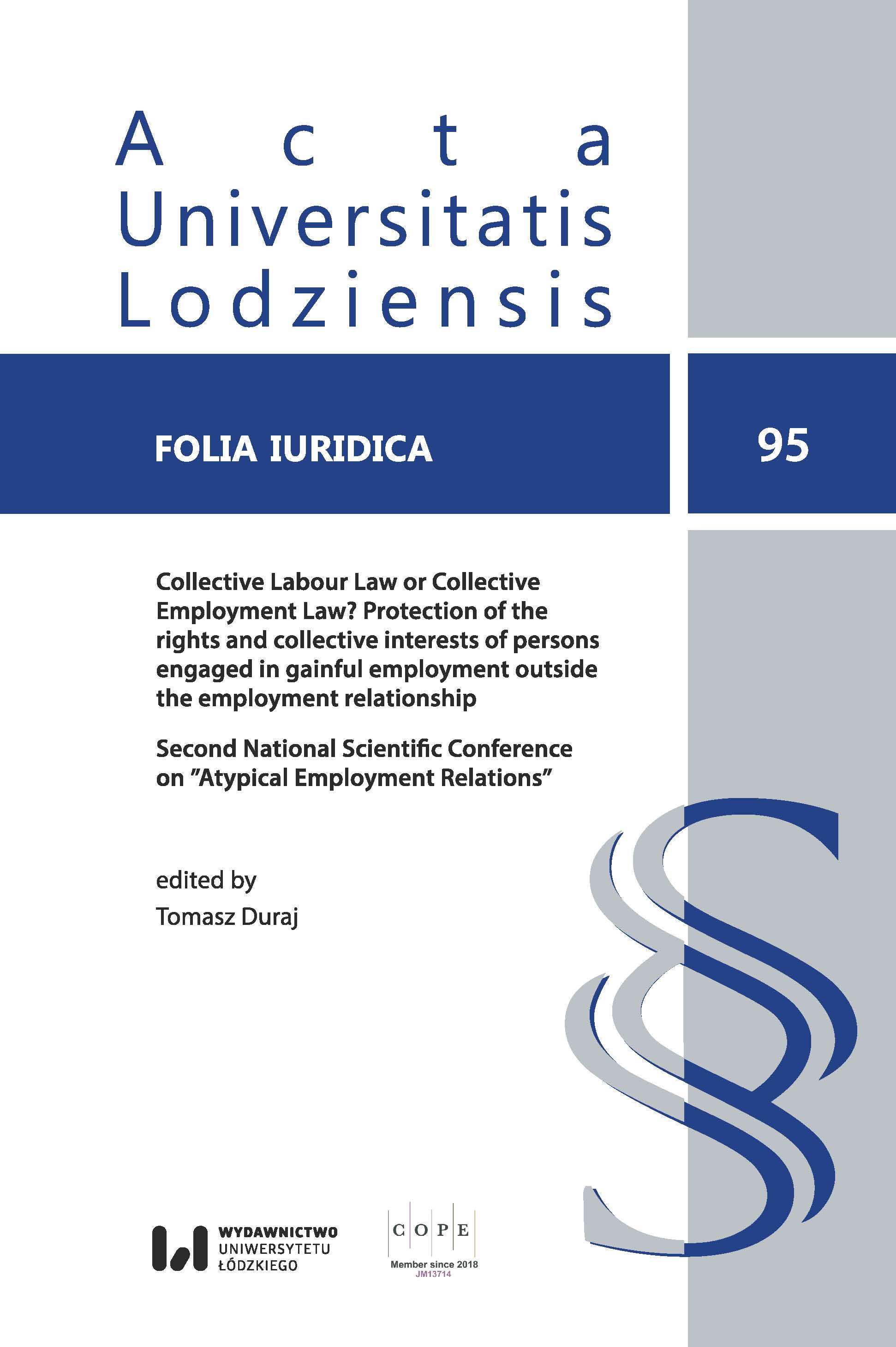Powers of Trade Union Activists Engaged in Self-Employment – Assessment of Polish Legislation
Powers of Trade Union Activists Engaged in Self-Employment – Assessment of Polish Legislation
Author(s): Tomasz DurajSubject(s): Labor relations, Labour and Social Security Law
Published by: Wydawnictwo Uniwersytetu Łódzkiego
Keywords: self-employment;trade union activists;right of coalition;trade unions
Summary/Abstract: The objective of the foregoing article is an analysis of the rights which the Polish legislature granted to self-employed trade union activists after the extension of coalition rights to these persons. In this regard, the trade union law extended to self-employed persons working as sole traders protection, which until 2019 was reserved exclusively for employees. Pursuant to the amendment of July 5, 2018, self-employed trade union activists were granted – based on international standards – the right to non-discrimination on the basis of performing a trade union function, the right to paid leaves from work, both permanent and ad hoc in order to carry out ongoing activities resulting from the exercise of a trade union function, and the protection of the sustainability of civil law contracts which form the legal basis for the services provided. the exercise of a trade union function, and the protection of the sustainability of civil law contracts which form the legal basis for the services provided.The author positively assesses the very tendency to extend employee rights to self-employed persons acting as union activists. However, serious doubts are raised by the scope of privileges guaranteed to non-employee trade union activists and the lack of any criteria differentiating this protection. Following the amendment of the trade union law, the legislator practically equates the scope of rights of self-employed trade union activists with the situation of trade union activists with employee status. This is not the right direction. This regulation does not take into account the specificity of self-employed persons, who most often do not have such strong legal relationship with the employing entity as employees. The legislature does not sufficiently notice the distinctness resulting from civil law contracts, which form the basis for the provision of work by the selfemployed the separateness resulting from civil law contracts, which constitute the basis for the performance of work by the self-employed. According to the author, the scope of rights guaranteed de lege lata to self-employed union activists constitutes an excessive and unjustified interference with the fundamental principle of freedom of contract on the basis of civil law employment relations (Art. 3531 of the Civil Code). From the point of view of international standards, it would be enough to ensure the right of these persons to non-discrimination on the basis of performing a trade union function; the right to unpaid temporary leaves from work in order to perform current activities resulting from the performed trade union function; the right to high compensation in the event of termination of a civil law contract with a self-employed trade union activist in connection with the performance of his functions in trade union bodies and full jurisdiction of labour courts in cases arising from the application of trade union law provisions.The disadvantage of the regulation at issue is also that Polish collective labour law does not in any way differentiate the scope of the rights and privileges guaranteed to self-employed trade union activists, ensuring the same level of protection for all. In that area, it appears that the legislature de lege ferenda should differentiate the scope of that protection by referring to the criterion of economic dependence on the hiring entity for which the services are provided.
Journal: Acta Universitatis Lodziensis. Folia Iuridica
- Issue Year: 2021
- Issue No: 95
- Page Range: 83-100
- Page Count: 18
- Language: English

